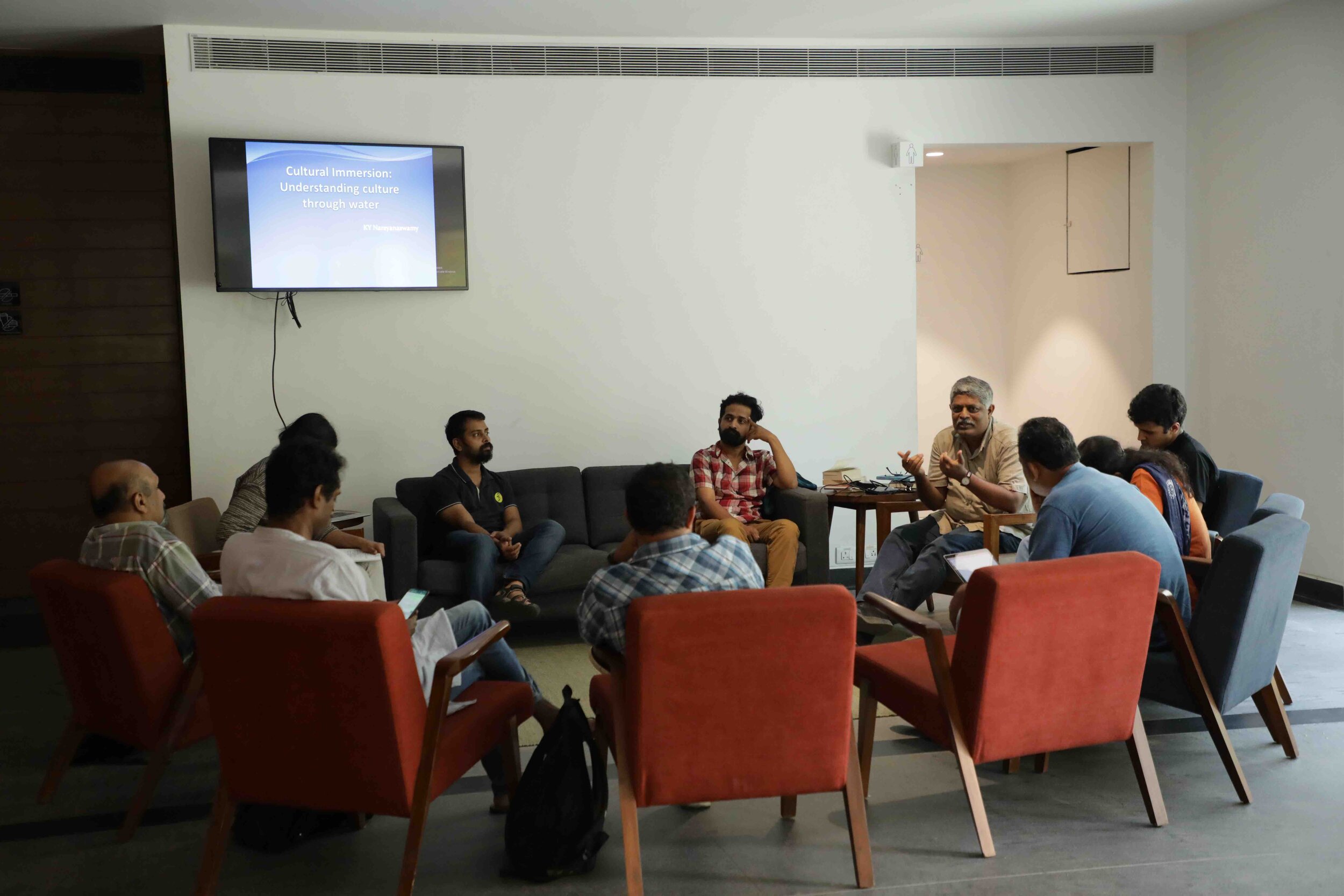Cultural Immersion: Understanding Culture through Water






In this talk, Kannada writer K Y Narayanaswamy presented how our culture is tied so closely to water. Water is considered as one of the five elements. Civilizations throughout history have been born, flourished, and destroyed alongside the banks of rivers. All the oral narratives of the world refer to Earth as being born from water. The history of mankind is nothing but the narrative of the many uses of water.
Particularly in the Indian context, water is understood as a matriarchal tradition in coexistence and conflict with the patriarchal Fire tradition. In the matriarchal tradition, water is a vehicle between heaven and earth and a representative of the goddess; Water is Female. Life and death are represented through water. Throughout Indian society, the narratives, metaphors, epics, rituals, and folk beliefs surrounding water continue to reveal the unknown cultural politics. Even in contemporary society, it is possible to trace the vestiges of the Water tradition, which continues to flow as an undercurrent despite attempts of its suppression.
This talk took place in a smaller group setting and was not recorded.
About the Writer
K Y Narayanaswamy is a Kannada poet, scholar, critic, and playwright. His many popular Kannada plays include Pampa Bharatha, Kalavu, Anabhigna Shakuntala, Chakraratna, Kiavara Nareyana , Huliseere, Mallige , Maya Beete Male Mantrika and Vinura Vema. He is credited with adapting Kuvempu’s magnum opus Malegalalli Madumagalu into a 9-hour play. His works have won him three state Sahitya Academy awards. He also writes screenplays for films. His PhD thesis, Neera Deevige is considered a landmark in Kannada cultural studies of water. He is currently a Kannada professor at Maharani Cluster University, Bangalore.
Connected Exhibits and Programmes
People and Water - photographs representing people and their relationship to water
Water and Human Settlements by Gajanana Sharma - public lecture on the changing relationship of human settlements and water


